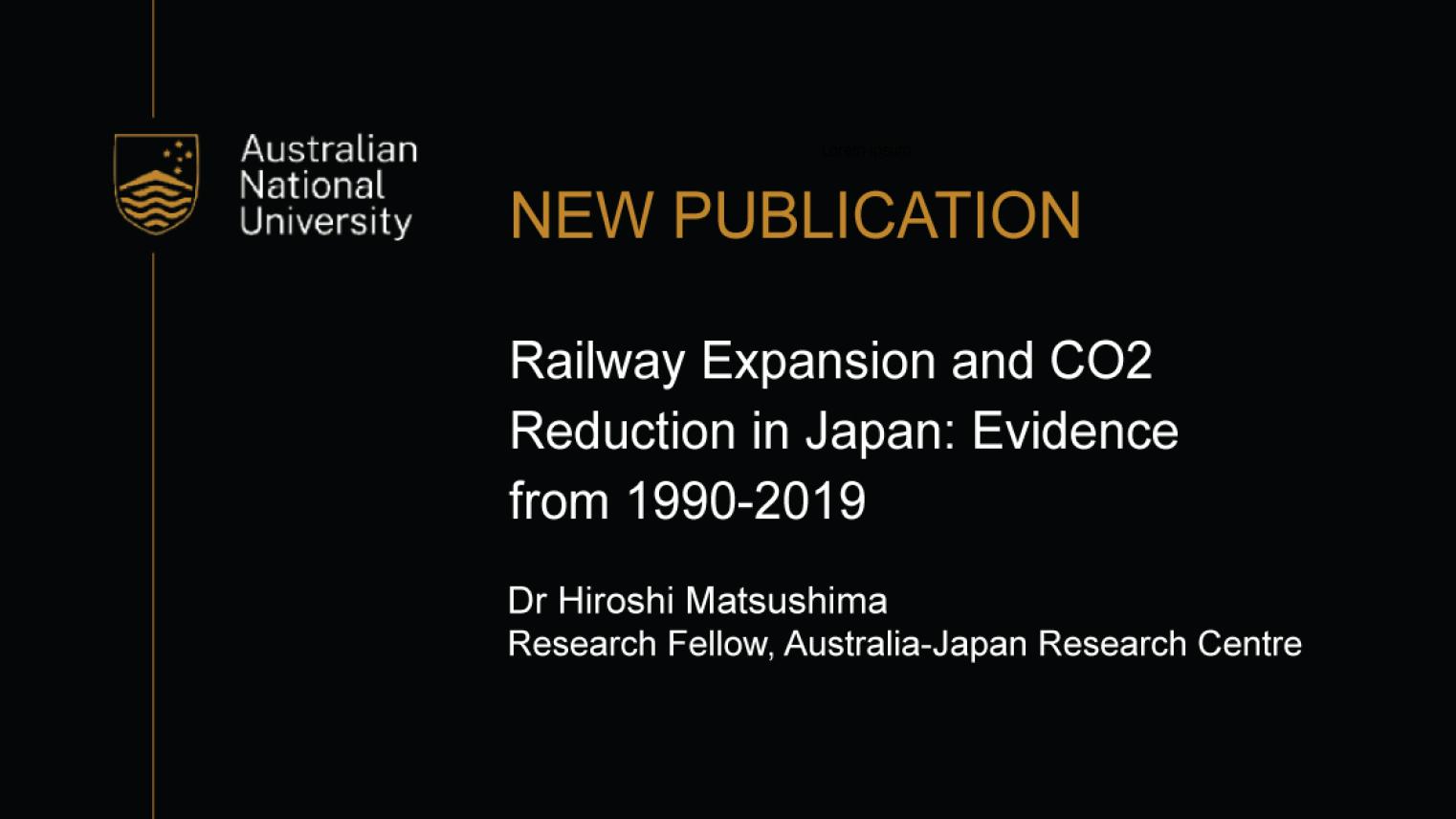Railway Expansion Key to Japan’s CO₂ Reduction Goals:

The Australia–Japan Research Centre is delighted to announce that a paper co‑authored by one of our Research Fellows, Dr Hiroshi Matsushima, “Railway Expansion and CO₂ Reduction in Japan: Evidence from 1990–2019,” has been accepted for publication in the Journal of Cleaner Production (ABDC rank: A), a leading international journal dedicated to sustainability and environmental innovation.
The study examines how the expansion of Japan’s railway network has contributed to reducing CO₂ emissions over the past three decades. It highlights a critical yet often overlooked mechanism in Japan’s climate policy: shifting travelers from road to rail. This modal shift, driven by improved market access through enhanced network connectivity, accounts for an estimated 61–68% of Japan’s stated 2030 railway sector CO₂ reduction target, underscoring its significant untapped potential.
Despite its importance, current government strategies focus narrowly on operational energy-efficiency measures within the rail sector. The paper argues for prioritising network expansion as a central strategy to unlock greater modal-shift benefits. As Japan’s electricity grid continues to decarbonize, the CO₂ savings per passenger-kilometre shifted to rail will grow even further—strengthening the case for more integrated transport and energy policies.
This forthcoming publication reflects AJRC’s growing contribution to climate and sustainability policy debates in Japan and the Asia Pacific. More projects are already underway, further building on these vital insights.
You can read the discussion paper published by the Research Institute of Economy, Trade and Industry here.
About the AJRC co-author
Dr Hiroshi Matsushima is a Research Fellow at the Crawford School of Public Policy and holds an appointment with the Australia–Japan Research Centre. His research focuses on the impacts of regulatory policies designed to reduce fuel consumption and emissions in the transportation sector. Before joining the Crawford School, he served as an Economic Fellow at New York University’s Institute for Policy Integrity, where he specialised in analysing U.S. energy and environmental policies. He has also worked as an economist at the Bank of Japan and as chief of staff to a member of the Japanese House of Representatives, bringing deep policy expertise to his academic research.